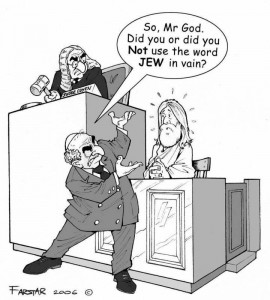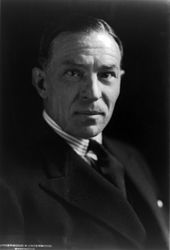England Instigated World War Two
September 8, 2011

London's aim was one of cornering the Reich in such a way that it would invariably end up fighting, only to be defeated once and for all and, as Churchill said, "gutted and dismembered". Vansittart's own words were: "...the German Reich ... has got to go under, and not only under, but right under".
Retired German General Gerd Schultze-Rhonhof's new book supports my view that the Second World War was waged to remove Germany as an obstacle to Illuminati One World Government. Reviewer Thomas Dunskus calls this policy a "disaster" for the British; but for the Illuminati, it was a total success.
Review by Thomas Dunskus
Abridged from Amazon site by henrymakow.com
Gerd Schultze-Rhonhof's book,"1939-The War that had many Fathers", now going into its seventh German edition, unfolds the period between the two major European wars of the 20th century and shows us that foreign policy deals with questions of power and not with issues of morality...
There is a document written by the Permanent Secretary of the British Foreign Office, Sir Robert Vansittart, dated 6 September 1940 on the subject of German approaches in Sweden aimed at bringing the war to an end.
This document has been published by Martin Allen in his book "The Hitler-Hess Deception", but, while many other documents published by Allen have been called forgeries by the British National Archives (an incredible accusation when one considers the amount of work involved and the most uncertain benefits to be expected), this document has not been incriminated.
 (left, Robert Vansittart, In January 1930 he was appointed Permanent Under-Secretary at the Foreign Office, where he supervised the work of Britain's diplomatic service.)
(left, Robert Vansittart, In January 1930 he was appointed Permanent Under-Secretary at the Foreign Office, where he supervised the work of Britain's diplomatic service.)It contains the strange sentence: "The enemy is the German Reich and not merely Nazism and [certain people]... would let us in for a sixth war even if we survive the fifth".
The meaning is, at first, totally obscure because Britain and Germany fought each other only once, in WW1, but it becomes clear if we read another statement in the same note: "... the German Reich and the Reich idea have been the curse of the world for 75 years...".
Reading Vansittart's unspeakable propaganda leaflet "Black Record", it becomes evident that, for London, it was a matter of removing Germany as a power factor in Europe, something that the prudent armistice proposed by the Germans in 1918 had prevented at that time. Germany's mere existence as a state with a political agenda of its own was a serious threat and had to be fought.
Seen in this light, London's behavior in the 1920s and 1930s takes on a certain rationality. Schultze-Rhonhof explains that London's aim was one of cornering the Reich in such a way that it would invariably end up fighting, only to be defeated once and for all and, as Churchill said, "gutted and dismembered". Vansittart's own words were: "...the German Reich ... has got to go under, and not only under, but right under".
At the time of the Munich crisis, such a policy could not be implemented because Britain was not yet strong enough and American aid was quite uncertain; another year was needed to reach a level of rearmament which would allow Britain to fight Germany, but the time frame was narrow, because this window of opportunity would close in the early 1940s, once Germany had completed her own preparations.
The complete crumbling of the Czechoslovak state in the spring of 1939 - after Poland had already ripped out the Teschen area within a month of Munich - led to the decision of the country's president, Hacha, to visit Berlin. Slovakia had become independent; Hitler made today's Czechia a German protectorate; Hacha remained at his post and the country survived WW2 without major damage.
Once, however, Germany claimed Danzig and a corridor through the Corridor, England extended an unsolicited, unenforceable and never executed guarantee to Poland which prompted Warsaw to become deaf to all German proposals. Britain now had an excuse to declare war, but Hitler, while being a convenient scapegoat, was no longer of any importance.
London's policy was anchored in the 19th century, but failed miserably in 1945: Europe was in shambles, Poland was under Soviet domination, Soviet tanks stood an hour's drive from the North Sea and the British Empire was a thing of the past. Economically, Britain was bankrupt and indebted to the US; moreover, within a mere ten years the western rump of Germany would top Britain in industrial production.
Looking back, there is no way but to call British actions in 1939 infantile and the result a disaster. The German Reich had been painted as a bogey-man but this blocked the view of the real world. Having believed their own propaganda, the Allies felt entitled to destroy the historical substance of continental Europe, thus creating a cultural and mental wasteland which constitutes a major crack in the structure of the western world to this day and which will perhaps never be completely closed.
Gerd Schultze-Rhonhof, an officer, not a historian, has cast a valuable spotlight on how all this came about.
----
Thanks to Alexandre for the tip.
Related- Illuminati Bankers Hired Hitler to Start WW2







Phillp said (September 10, 2011):
Ref. yours recently on Rense, Britain started WWII, the same is argued forcefully in this new book about the Russian genocide of Germans starting in 1945 See www.Rexvita.com